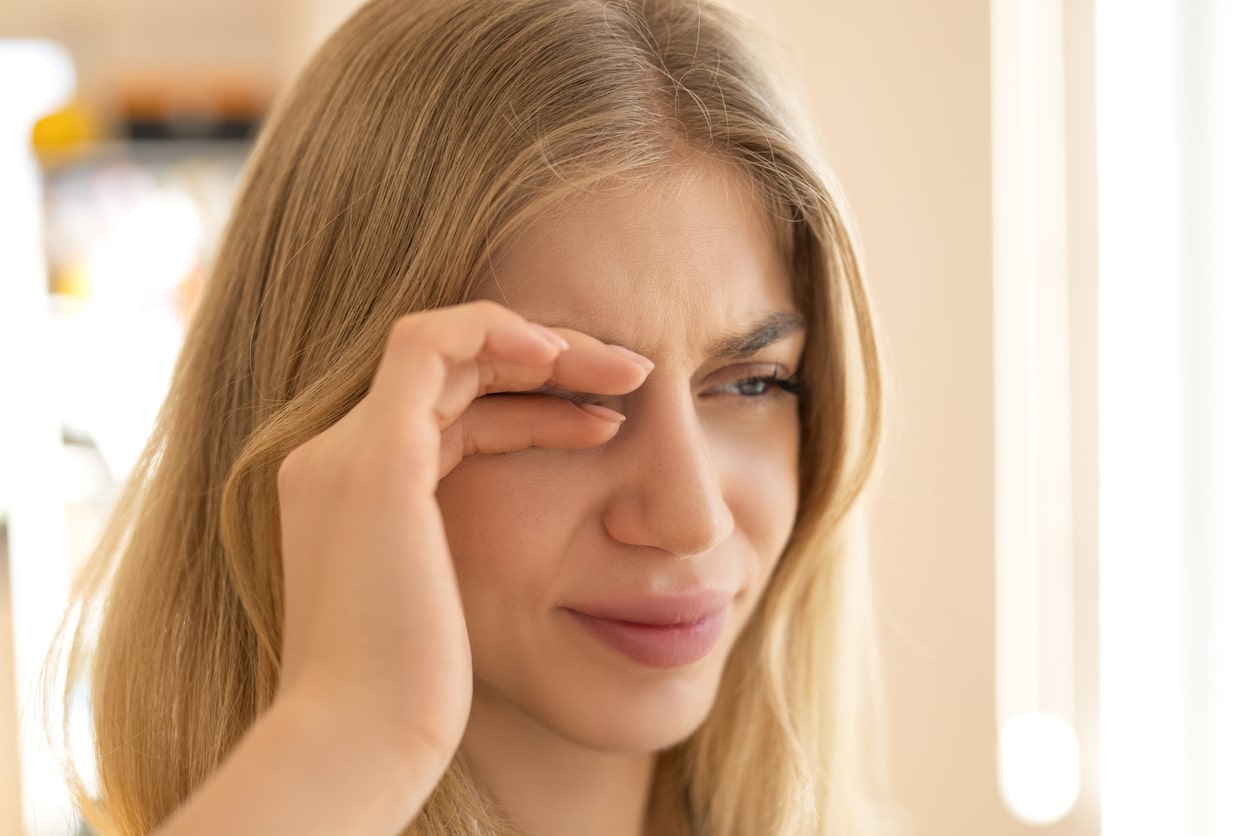Red, itchy eyes may leave you wondering whether allergies or something like pink eye are irritating. Allergies are common, with 100 million Americans experiencing them each year. Pink eye, or conjunctivitis, is also the most commonly diagnosed eye problem.
The two can cause similar symptoms, so understanding the differences between them can help you take the right steps toward relief and know when it’s time to see a doctor.
About Pink Eye

Pink eye is an inflammation of the thin tissue covering the white part of the eye and the inside of the eyelid. It can be caused by viruses, bacteria or irritants like smoke or chemicals. Viral conjunctivitis is the most common type and is very contagious
Common signs of pink eye include:
- Redness in one or both eyes
- Watery or thick yellow/green discharge
- Crusty eyelashes, especially after sleeping
- Itching or burning sensation
- Sensitivity to light
- Swollen eyelids
In some cases, pink eye starts in one eye and spreads to the other. If bacteria or viruses cause it, it can be easily passed to others through hand-to-eye contact or shared items.
What Are Allergy-Related Eye Symptoms?
Allergic conjunctivitis occurs when your eyes react to allergens like pollen, dust mites, pet dander or mold. It is not contagious and usually occurs in both eyes simultaneously.
Symptoms of allergy-related eye irritation include:
- Redness and itching in both eyes
- Watery discharge that is usually clear
- Puffy or swollen eyelids
- Sneezing, runny nose or nasal congestion
- Symptoms that worsen outdoors in places like Stevens Lake Park, or during allergy season
Unlike pink eye caused by infection, allergy symptoms often appear alongside other allergic responses like a scratchy throat or postnasal drip.
When to Seek Medical Care
Sometimes, the symptoms alone aren’t enough to determine what’s causing your eye discomfort. You should seek medical attention if:
- You have moderate to severe eye pain
- Vision becomes blurry or changes suddenly
- Symptoms don’t improve within a few days
- You develop sensitivity to light
- Your eyes produce thick or colored discharge
- Only one eye is affected, and symptoms worsen over time
For allergy-related symptoms, over-the-counter antihistamine eye drops or oral allergy medications at your doctor’s direction can often bring relief. But if your symptoms are severe or persistent, an allergist or eye doctor can help tailor a treatment plan.
To learn more about allergy symptoms and management, contact Palmetto ENT & Allergy to schedule an appointment today.
